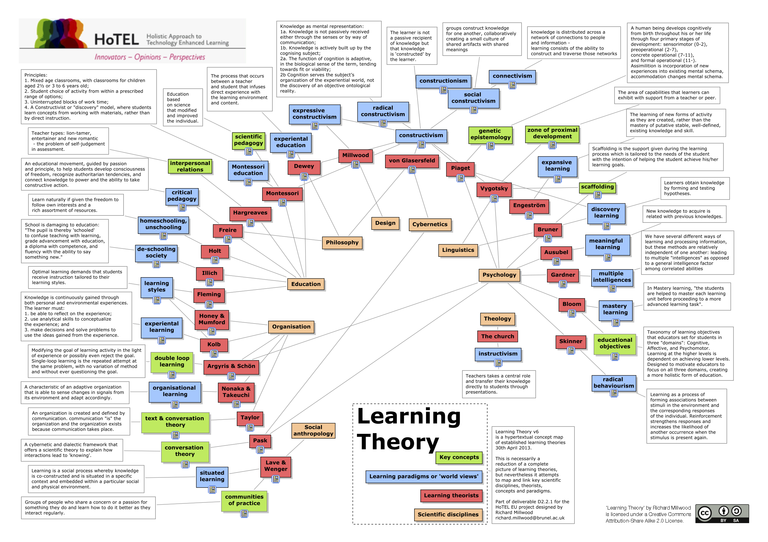The challenge of Learning Theory
Figure 5: Learning Theory
This concept diagram (Figure 5) and notes below are taken from the work I undertook to complete an overview of learning theory for the EU-funded HoTEL project in 2013, intended to help technology enhanced learning innovators untrained in educational theory to make better sense of theory in order to improve their designs and the impact of their innovations.
"Learning theory has been a contested scientific field for most of its history, with conflicting contributions from many scientific disciplines, practice and policy positions. With the continuing and disruptive influence of technology on information, knowledge and practice in all sectors of society it is no wonder that innovators, drawn to the interactive potential that computers bring to learning, are challenged by the theoretical basis for their innovations.
Formal education is also a high stakes, culturally & institutionally conservative activity, which serves more than one societal purpose, including:
learner development and fulfilment; child care; preparation for citizenship, parenthood and retirement; preparation for work; selection for jobs.
Even in the higher, informal and professional sectors of education, complexity of education is matched by complexity of learning outcomes which may include:
skills development; knowledge acquisition; improvement in strategic, analytic and creative capacities; attainment of competence; establishment of attitudes and values.
Each of these societal purposes and these learning outcomes demand different approaches and understandings for the theorist and may develop at varying rates or found to be diverse in relation to context, location and culture."
Millwood (2013)
In these circumstances, I as a designer have had to create a theoretical position which draws from the best, yet can provide a more straightforward basis for design decision-making - this position is explained in the next section [A1] Expressive Constructivism.
(Words: 406 )


